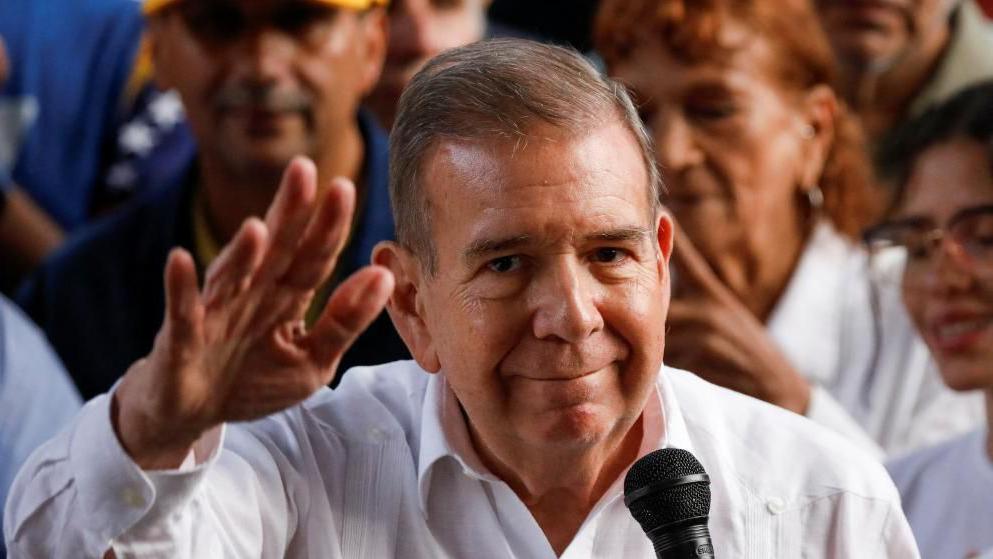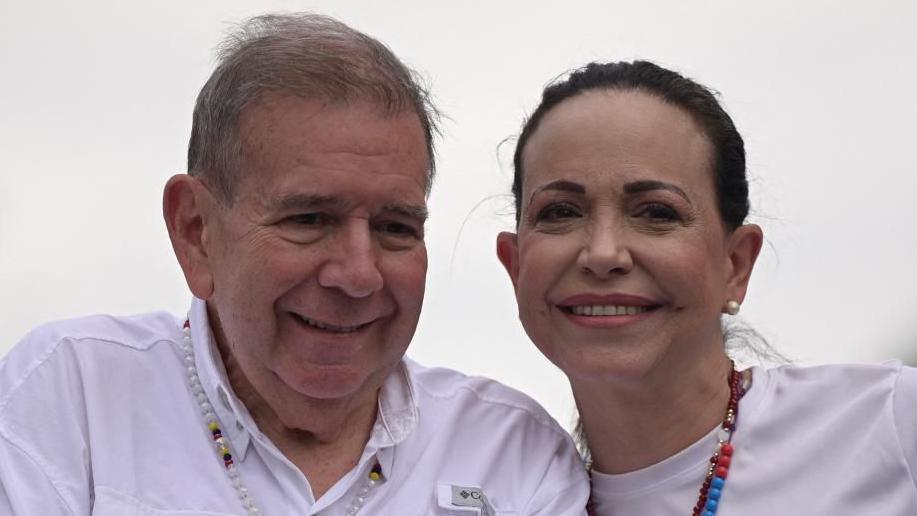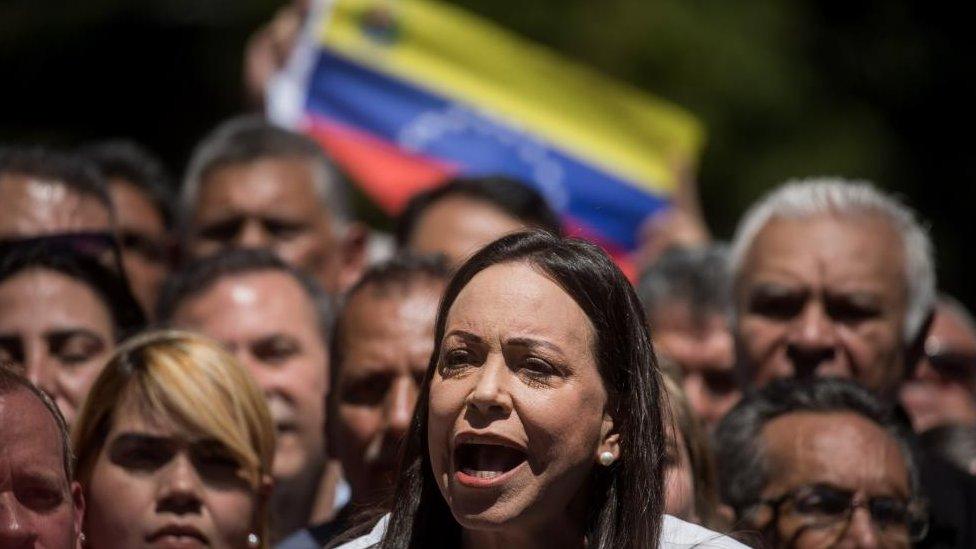Edmundo González: The man taking on Maduro for Venezuela's presidency

- Published
It is fair to say few had heard of Edmundo González when he registered as a candidate for Venezuela's presidential election back in March.
The 74-year-old had never run for public office before and was not even widely known in opposition circles.
And yet, in the four months since he decided to run for the top office, the low-key former diplomat has overtaken incumbent President Nicolás Maduro in the opinion polls.
He has become the man the main opposition coalition, MUD, is pinning its hopes on to oust Mr Maduro, who has been in office for the past 11 years.
A large part of his appeal stems from the fact that he has the backing of María Corina Machado, the woman who won an opposition primary in October by a landslide.

Ms Machado received 93% of the votes in the open primary despite being banned from running for office.
When the ban was upheld by the Supreme Court, a body which is stacked with Maduro loyalists, Ms Machado first picked 80-year-old academic Corina Yoris to replace her on the ballot.
When Ms Yoris was thwarted from registering her candidacy by computer problems the opposition blamed on the government, Mr González became the opposition's surprise "provisional" candidate.
For the next three weeks, Mr González was referred to by his own coalition members as a "placeholder", who was widely expected to be replaced by a candidate with more name recognition.
Finally, a day before the deadline to change the names on the presidential ballot expired, the MUD announced it would stick with the former diplomat.
But far from thrusting its candidate into the limelight, the opposition coalition kept Mr González in the background, while Ms Machado criss-crossed the country calling on people to vote for him.
This may have seemed an unusual strategy in most countries, but in Venezuela, where opposition activists have been harassed and in some cases jailed, it was considered a wise precaution by many.
Venezuelan opposition leader's security chief detained
- Published17 July 2024
Venezuelan opposition denounces 'intimidation' attempts
- Published24 January 2024
According to non-governmental group Foro Penal, 72 opposition campaign workers have been arrested since 4 July, when the election campaign officially kicked off.
Despite these attacks on the opposition campaign, Mr González's tone and rhetoric have been calm and measured, in keeping with his past as an ambassador.
"I never imagined I would be in this position," he told BBC News Mundo about becoming the opposition's unity candidate.
In a change from the infighting which has hampered the Venezuelan opposition in the past, he has appeared shoulder-to-shoulder with María Corina Machado, whom he continues to refer to as "the opposition leader".
He has also struck a conciliatory tone when addressing those who support Mr Maduro, promising "reconciliation" were he to win on Sunday.
"We aim for those who support the government - which is a dwindling number of people - to listen to our call for a coming together of all Venezuelans," he told BBC News Mundo in June.
It is a message he has repeated time and time again.
"Enough of the shouting and the insults, it's time to come together," he urged in a prayer meeting just a week before the polls.
His reconciliatory tone in a country which has seen divisions between government and opposition supporters get ever deeper over the past 11 years is in stark contrast to that of his rival, President Maduro, who has warned of a "bloodbath" should Mr González win.
Senior members of the Maduro administration have repeatedly dismissed Mr González as "a poor old man" who "is part of a perverse plan to inflict harm on our people".
Despite these personal attacks on him, Mr González has steadfastly insisted that reaching out to those who are on the other side of the political divide is the only way to forge "national reconciliation".
Asked about widespread fears that the result of the election may be tampered with - the 2018 re-election of Mr Maduro was widely dismissed as neither free nor fair - Mr González has insisted that he is hopeful that the opposition will win with such a majority that it will make his victory hard to contest.
"They have wanted to spread fear of change, they want you to be afraid to express yourselves on Sunday, but what they're not counting on is the bravery of the Venezuelan people," he said a week before the polls.
Related topics
- Published5 August 2024
